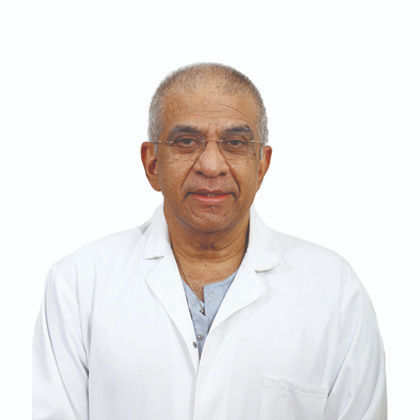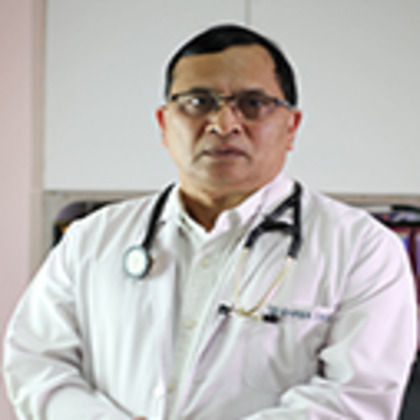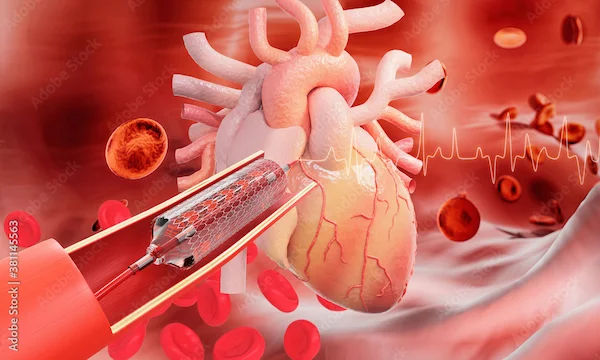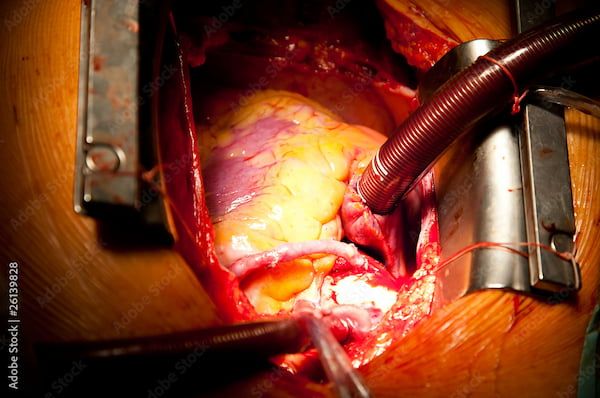Weight Training After Bypass Surgery
Learn how to safely resume weight training after bypass surgery. Understand recovery stages, benefits, precautions, and expert-recommended exercise guidelines for a heart-healthy comeback.

Written by Dr.Sonia Bhatt
Last updated on 20th Jul, 2025

Introduction
Recovering from bypass surgery is a significant milestone, and returning to physical activity can feel daunting. However, with the right approach, weight training can be a safe and beneficial part of your recovery journey. This article will guide you through the essentials of weight training after bypass surgery, helping you regain strength while prioritising heart health.
Understanding Bypass Surgery and Recovery
Before incorporating weight training, it's important to understand how your body heals after bypass surgery.
Bypass surgery (coronary artery bypass grafting or CABG) is performed to improve blood flow to the heart by creating new pathways around blocked arteries. Recovery involves healing, rebuilding strength, and adopting heart-healthy habits. After surgery, your doctor will likely recommend cardiac rehabilitation—a supervised program that includes exercise, nutrition, and lifestyle changes. Weight training can be introduced gradually to rebuild muscle strength, improve endurance, and enhance overall well-being.
When Can You Start Weight Training After Bypass Surgery?
Knowing when to resume strength training is key to a safe recovery. The timeline for resuming weight training depends on your recovery progress. Generally:
First 6–8 weeks: Focus on light activities like walking and gentle stretching
After 8–12 weeks: With your doctor’s approval, you can begin light resistance exercises
3–6 months post-surgery: Gradually increase intensity under medical supervision
Always consult your cardiologist or cardiac rehab specialist before starting any weight training program.
Benefits of Weight Training After Bypass Surgery
Weight training, when done correctly, offers multiple health and recovery benefits.
Strengthens muscles: Helps regain lost muscle mass and improves mobility
Enhances heart health: Supports circulation and reduces strain on the heart
Boosts metabolism: Helps maintain a healthy weight, reducing cardiac risks
Improves bone density: Reduces the risk of osteoporosis
Boosts mood and energy: Exercise releases endorphins, improving mental well-being
Safe Weight Training Guidelines
Following structured safety measures is essential when starting weight training post-surgery.
1. Start Slow and Light
Begin with low weights (1–3 lbs) or resistance bands
Focus on higher repetitions (12–15 reps) rather than heavy lifting
Avoid straining—never hold your breath while lifting (this increases blood pressure)
Consult Top Cardiologists To Know When You Can Start Weight Training
2. Choose the Right Exercises
Upper Body: Light dumbbell curls, shoulder presses, and chest presses
Lower Body: Seated leg lifts, calf raises, and mini squats (with support if needed)
Core Strengthening: Gentle abdominal contractions and pelvic tilts (avoid heavy crunches)
3. Monitor Your Body’s Response
Stop immediately if you experience:
Chest pain or discomfort
Dizziness or shortness of breath
Irregular heartbeat
Keep your heart rate in a safe range (ask your doctor for your target zone)
4. Avoid High-Intensity or Heavy Lifting
No powerlifting or heavy deadlifts—these can strain your heart
Avoid overhead presses if you have shoulder healing concerns
No Valsalva manoeuvre (holding breath while lifting)
5. Combine with Cardio and Flexibility Training
Walking, swimming, or cycling improves cardiovascular endurance
Stretching and yoga help maintain flexibility and relaxation
Lifestyle and Dietary Tips for Optimal Recovery
Supporting your strength training with healthy habits will speed up recovery and improve results.
1. Follow a Heart-Healthy Diet
Eat lean proteins (fish, chicken, beans)
Include whole grains, fruits, and vegetables
Limit saturated fats, salt, and processed sugars
Stay hydrated—water supports circulation and muscle function
2. Get Enough Rest
Muscles need time to recover—allow at least 48 hours between strength sessions
Aim for 7–9 hours of sleep for optimal healing
3. Manage Stress
Practice deep breathing, meditation, or gentle yoga
Avoid excessive stress, which can impact heart health
4. Regular Medical Check-ups
Keep up with follow-up appointments to monitor heart function
Adjust your exercise plan based on medical advice
When to Seek Medical Advice?
Always stay alert to signs that may indicate complications during your exercise routine.
If you experience any of the following, stop exercising and consult your doctor immediately:
Chest pain or pressure
Severe shortness of breath
Unusual fatigue or dizziness
Irregular heartbeats
Conclusion
Weight training after bypass surgery can be a safe and rewarding way to regain strength—if done correctly and under medical supervision. Start slow, listen to your body, and focus on gradual progress. Combined with a heart-healthy diet and regular cardio, strength training can significantly improve your quality of life post-surgery.
If you’re unsure about starting weight training after bypass surgery, consult a cardiac rehabilitation specialist or cardiologist. Apollo 24|7 offers expert consultations and tailored recovery plans—book an appointment today for a safe and effective fitness journey.
Consult Top Cardiologists
Consult Top Cardiologists To Know When You Can Start Weight Training

Dr. Sridhar V
Cardiothoracic and Vascular Surgeon
30 Years • MBBS, MS, MCh, DIP NBE, FIACTS
Madurai
Apollo Speciality Hospitals KK Nagar, Madurai
(50+ Patients)

Dr Kshitij Dubey
Cardiothoracic and Vascular Surgeon
10 Years • MBBS; MS; MCh; CTVS
Indore
Apollo Hospitals Vijay Nagar, Indore

Dr. Srikanth Bhumana
Cardiothoracic and Vascular Surgeon
12 Years • MBBS, MS (JIPMER), MCh (PGI) (Cardiothoracic Surgeon), (Beating Heart Bypass Surgery), (Minimal Invasive Cardiac Surgery, MICS)
Tiruchirappalli
Apollo Speciality Hospitals Old Palpannai, Tiruchirappalli
(50+ Patients)

Dr. Vijay Shankar C S
Cardiothoracic and Vascular Surgeon
30 Years • MBBS, MS (General Surgery), M.Ch
Chennai
Apollo Hospitals Greams Road, Chennai
(75+ Patients)

Dr. Bhaba Nanda Das
Cardiothoracic and Vascular Surgeon
37 Years • MBBS, MS, MCh
Delhi
Apollo Hospitals Indraprastha, Delhi
(25+ Patients)
Consult Top Cardiologists

Dr. Sridhar V
Cardiothoracic and Vascular Surgeon
30 Years • MBBS, MS, MCh, DIP NBE, FIACTS
Madurai
Apollo Speciality Hospitals KK Nagar, Madurai
(50+ Patients)

Dr Kshitij Dubey
Cardiothoracic and Vascular Surgeon
10 Years • MBBS; MS; MCh; CTVS
Indore
Apollo Hospitals Vijay Nagar, Indore

Dr. Srikanth Bhumana
Cardiothoracic and Vascular Surgeon
12 Years • MBBS, MS (JIPMER), MCh (PGI) (Cardiothoracic Surgeon), (Beating Heart Bypass Surgery), (Minimal Invasive Cardiac Surgery, MICS)
Tiruchirappalli
Apollo Speciality Hospitals Old Palpannai, Tiruchirappalli
(50+ Patients)

Dr. Vijay Shankar C S
Cardiothoracic and Vascular Surgeon
30 Years • MBBS, MS (General Surgery), M.Ch
Chennai
Apollo Hospitals Greams Road, Chennai
(75+ Patients)

Dr. Bhaba Nanda Das
Cardiothoracic and Vascular Surgeon
37 Years • MBBS, MS, MCh
Delhi
Apollo Hospitals Indraprastha, Delhi
(25+ Patients)


